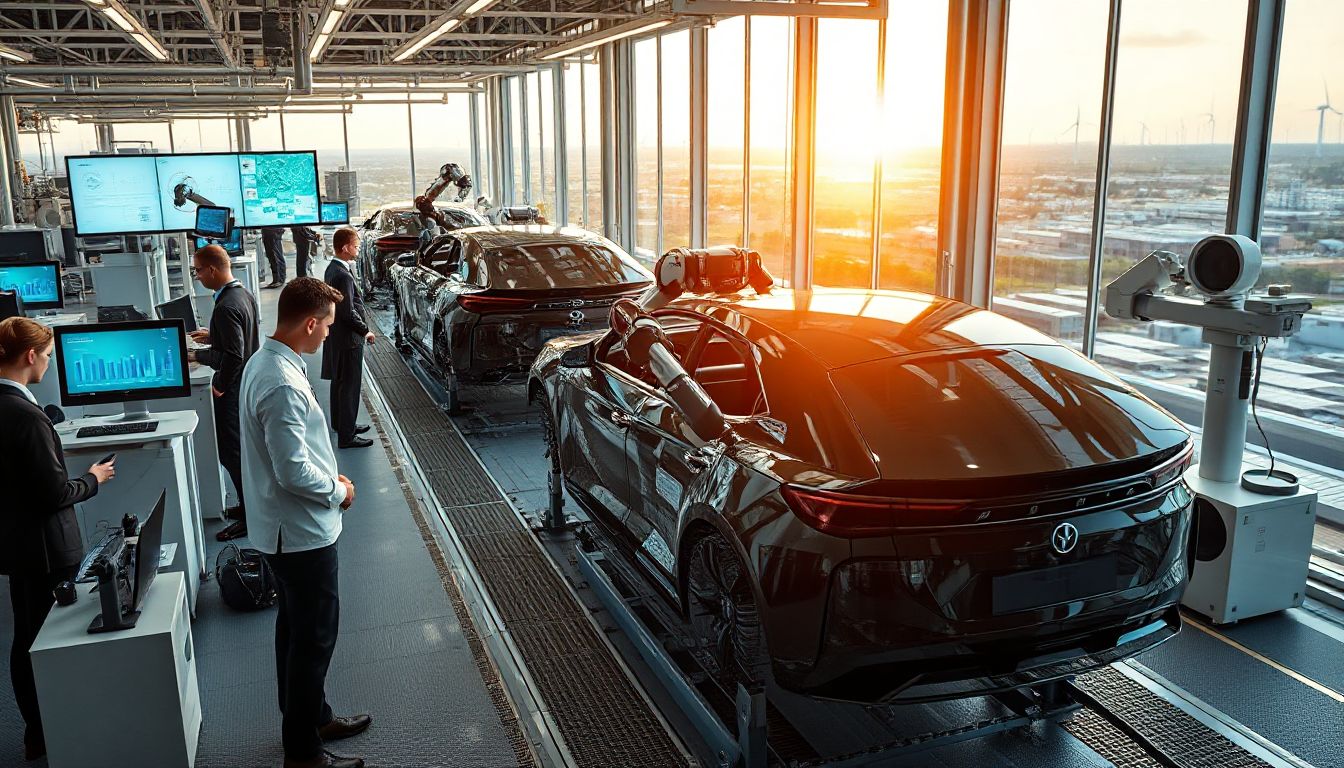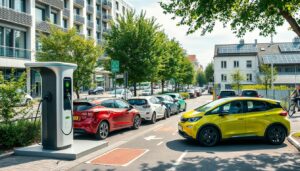Introduction
The world is shifting toward cleaner and greener ways to get around. Countries everywhere are pushing for more electric vehicles (EVs), and Germany is leading the charge. This big change is creating new jobs in many areas. Whether you’re looking for a new career or want to stay ahead in your current job, understanding what’s happening in the German EV scene can open doors. As more Germans buy EVs, companies need more workers to build, sell, and support these vehicles. Knowing which jobs are growing helps you prepare for the future.
The German Electric Vehicle Market: An Overview
Market size and growth statistics
Germany’s EV market has exploded in recent years. In 2022, over 700,000 electric cars were sold — a big jump from just a few years earlier. The government wants 7-10 million EVs on the streets by 2030. They’re offering financial incentives and new rules to make sure more people buy electric. This push makes the country move faster toward greener transport, creating many new jobs.
Major automakers and industry players
Volkswagen, BMW, and Mercedes-Benz are huge names in Germany’s EV world. These companies have big plans to switch their factories to make more electric cars. Plus, startups like Sono Motors and e.GO Mobile are bringing fresh ideas and creating new roles. As these companies grow, they hire engineers, factory workers, and software specialists to get things done.
Infrastructure development and its impact on employment
Germany is spreading out charging stations all over the country. They’re built along highways, in cities, and even at small towns. These projects need construction crews, maintenance teams, and technology experts. As the EV network grows, so do jobs in wiring, software, and customer support. This isn’t just about cars — it’s about creating an entire new industry.
In-Demand EV Job Roles in Germany
Engineering and Technical Positions
Design engineers and battery specialists are at the heart of EV development. They work on making batteries last longer and vehicles faster. EV drivetrain engineers design systems that make electric cars smooth and quick. Skills like CAD software, electrical knowledge, and coding are key. People with experience in these areas find many job openings.
Manufacturing and Assembly Jobs
Factories are changing. Automation means fewer workers are needed on the line — but those who are left need new skills. Production line workers now often operate robots, check quality with digital tools, and do more precise work. Quality assurance technicians also look for flaws in the new, hi-tech parts.
Research and Development Opportunities
Germany invests big in R&D, especially in batteries, vehicle tech, and autonomous driving. Many universities and research centers work with automakers. R&D jobs involve testing new ideas, improving safety, or creating eco-friendly components. These roles are vital for keeping Germany at the forefront.
Sales, Marketing, and Customer Support
As the EV market grows, so does the need for specialists in sales and after-sales support. Companies now need people who understand EVs and can explain their benefits to buyers. After-sales techs also help with repairs and maintenance, requiring staff who know the ins and outs of electric cars.
Policy, Regulation, and Compliance Jobs
Germany’s strict safety and environmental rules mean there are jobs in government agencies and regulation bodies. These roles focus on setting standards for battery safety, emissions, and recycling. Compliance officers ensure companies follow new laws to stay on the right side of regulations.
Emerging Trends and Skills for EV Job Seekers
Digital and Software Skills
Knowing how to program and handle vehicle data is more important than ever. Skills in software development, vehicle connectivity, and cybersecurity open up many doors in EV companies.
Sustainability and Green Skills
Experts in battery recycling and eco-friendly materials are in high demand. Companies want workers who can help reduce environmental impact from sourcing to disposal.
Cross-disciplinary Skills
The best EV workers often have a mix of skills — electrical, mechanical, and software. Collaboration between these fields is essential for innovation.
Certification and Training Programs
There are many courses designed to boost your EV knowledge. Certifications in EV safety, battery tech, and vehicle maintenance can give you an edge in the job market.
Leveraging Industry Events and Networks
Attending conferences, career fairs, and joining industry associations helps you connect with key players. Networking is a powerful way to find new opportunities.
Key Regions and Cities with EV Job Opportunities
Automotive hubs in Germany
Cities like Stuttgart, Munich, and Wolfsburg are home to big automakers and suppliers. These areas are packed with factories and research centers. If you want to work in EV manufacturing or R&D, these are the places to be.
Emerging hotspots
Berlin, Leipzig, and Hamburg are great options for startups and innovative tech companies. They’re exploring new ways to improve EV tech. These cities also host many industry events, making them ideal for networking.
Regional government support and incentives
Many local governments are offering incentives to attract EV companies. These support the industry and create jobs in construction, tech, and logistics. Cities are racing to become Green Tech centers.
Challenges and Future Outlook
Skills gap and training needs
There’s a real shortage of workers with EV-specific skills. Upskilling and training programs are essential to fill this gap. Without enough qualified workers, growth could slow.
Impact of EU regulations and incentives
EU policies strongly support EVs, but they also change often. Staying informed helps companies adapt quickly, keeping job opportunities alive. Changes like stricter emissions rules push automakers to expand their teams.
Future growth projections
The EV industry in Germany is expected to keep growing. By 2030, millions of new jobs could open up in manufacturing, R&D, and support services. Those prepared now will be first in line for new roles.
Conclusion
Germany’s push toward electric vehicles creates a vibrant job market. From engineering and factory work to policy and innovation, opportunities are everywhere. To succeed, focus on building skills in tech, sustainability, and teamwork. Networking and staying informed are key. Germany is set to stay a global leader in EVs — and that means promising careers are just around the corner. If you’re ready to jump in, now’s the time to act. The future of electric mobility is bright — will you be part of it?




